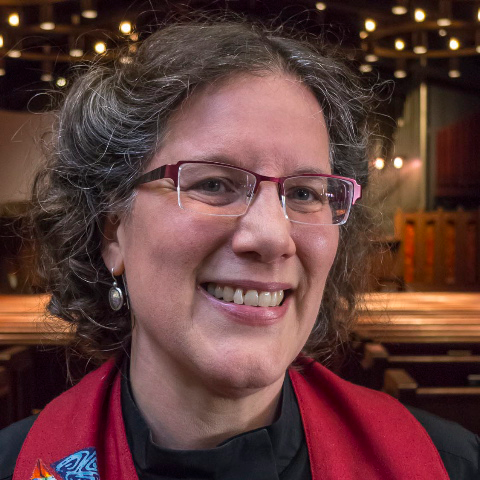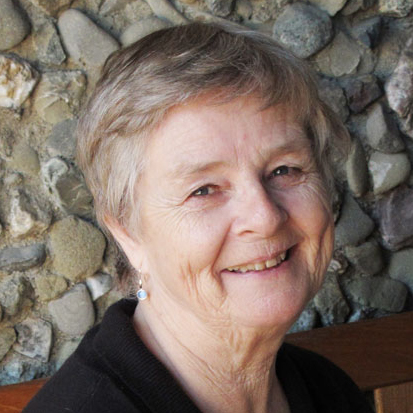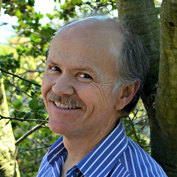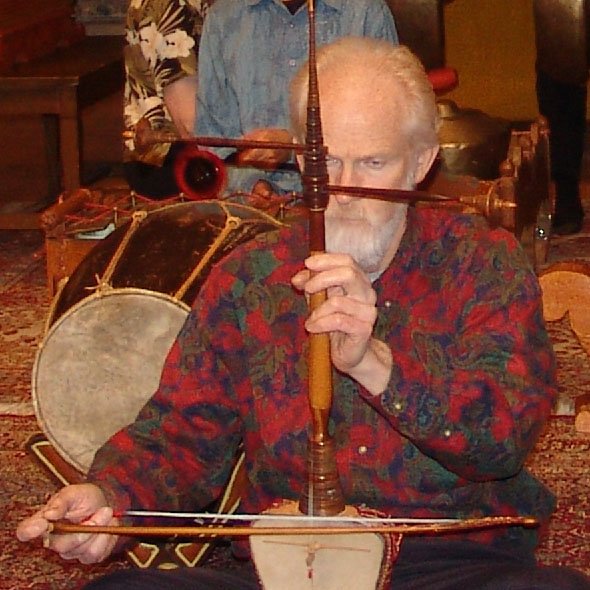“Why?!? Why are you doing this?”
“There’s something I want to explain to you. Something important. But I can’t. You’ll figure it out in time.”
“But I want to know now! Why can’t you tell me?”
“You wouldn’t understand.”
This, of course, just frustrated the stew out of me. It had been a hard year. My first year at Kindergarten started. My parents were struggling with what eventually would end up in divorce. And now my babysitter was telling me that she was leaving to go to college. And she wouldn’t explain why she had to go half way across the country instead of attend one of the dozens of colleges close to home.
“Things will change for you someday and it’ll make sense.”
“But I don’t want things to change.”
“Someday you’ll look forward to change.”
“Not me. I don’t want to change.”
“You will.”
“What’s wrong with me the way I am? Why do I need to change?”
“Nothing is wrong with you. But do you want to be five years old forever?”
This one stumped me. I was silent.
“Someday it’ll make sense to you.”
“No it won’t,” I protested.
“Then I’ll come back and explain it to you,” she said. But she never did.
There’s a theory that all ministers have two things in common. First, we all had sadistic babysitters. Those who frustrated us with unresolved questions. And pushed us into a profession where we could systematically return the favor and frustrate people in our care with the same unresolved questions.
This, as far as UUA knows, is true.
So, it is here that I would like to mention that there is something I want to explain to you. Something important that you need to know. But I can’t. At least ‘not quite yet.’ Belum. You’ll figure it out in time. Maybe even by the end of the sermon.
The second thing that all ministers have in common is, perhaps, a little less obvious. We all have a love-hate relationship with change. We want people to know they are good just the way they are. But we also want them to change. That’s confusing. And hard.
There’s a saying that the only thing that ever likes change is a wet baby. That said, a large number of people I’ve known a great number of people who’ve gotten quite used to living in dirty diapers.
We avoid change. ‘Brace ourselves for change.’ Ask ‘how’re you coping with the change?’ The only time we recommend change is when we notice someone looks so terrible that we say, ‘a change will do you good.’
Those who resist change are often the recipients of praise. When I was in Atlanta, it was common to hear among people reuniting: “Well, look at you!! You haven’t changed a bit!!” “Well, neither have you, bless your heart.”
It’s lucky we don’t detect most of the change around us. Otherwise we’d be nervous wrecks. For instance, think how safe we’d feel if we happened to notice that the earth is spinning at a surface level of just over 1000 miles per hour and that we are hurdling through space, around the sun, at 67,000 miles per hour. Think how we’d feel if we realized that every minute we are losing 30-40 thousand skin cells. That every three days our entire outer layer of skin is completely replaced. Every time we dust – since dead skin cells are the major component of household dust – we are wiping ourselves up and throwing ourselves away. Sometimes it’s better when we aren’t aware of all the change around us.
But sometimes it isn’t.
W. Edwards Demming was an American statistician who revolutionized modern manufacturing in the 1950’s when he worked for Ford Mo. Co. He decided to leave America and work with the Japanese – one of the reasons Japan’s auto industry emerged as the world leader in the 60’s, 70’s and 80’s. He fit his thoughts about change into two sentences. He said, “It is not necessary to change. Survival is not mandatory.”
<><><>
Some years back a book came out which become a number one bestseller. It was called “Who Moved My Cheese.” It was a short fable about two mice (Sniff and Scurry) and two little people (Hem and Haw) trapped in a maze looking for cheese. The mice used instinct, adaptability and resiliency to search for the cheese. The little people used more powerful brains, beliefs, emotion, logic and rationale in their search.
As the fable begins, all four start out in the maze until, after only a short time they come across a whole lot of cheese. They are ecstatic! The place becomes known as ‘Cheese Station C.’ They eat their fill. They go home. When they go back the next day they are excited to see the cheese still there. Again, they eat. They get full. They go home. Nothing changes that day. Nor the next. Or the next.
Pretty soon expectations develop. Habits form. A groove gets worn in the path from their homes to Cheese Station C. It becomes ‘their’ path. They don’t get as excited each subsequent morning to find Cheese station C. They’ve come to expect it. In fact, they get up a little later each day. They get to the cheese and take off their shoes. Eat their fill. Loosen their belts. Eat some more. Fall asleep. Waddle home and do it again the next day. Their lives become a little more predictable. A little more comfortable.
Then, one day, everything changes for the four of them. They arrive at Cheese Station C just like any other day. But the cheese is gone.
The mice, Sniff and Scurry, notice this. They look at one another, size up the situation, and immediately go back out into the maze to look for more cheese. But the book is not about the mice. It’s about us. It’s about Hem and Haw and how their sophisticated brains deal with change.
Hem and Haw stand before the emptiness of their beloved Cheese Station C in disbelief. “No Cheese!?!?!” they cry. “This is impossible!!! There’s always been cheese!!!!” And then they start screaming, “Who moved my cheese?!?!”
Hem and Haw had decided that it was ‘their’ cheese. They talked about how unfair this was and how much they deserved the cheese, on account of having worked to find it in the first place. They talked about wanting compensation for the cheese that had been taken. Retribution. Wasn’t there someone they could sue.
After a while, Haw began to wonder if, maybe, they shouldn’t just accept that there was no more cheese and go back to looking in the maze. Hem said that was unthinkable. Why should he have to change? After all, he wasn’t the one who made the cheese go away.
There is a name for this kind of attitude. I learned it when I was a chaplain at Toronto General Hospital. My supervisor, Ken Jackson, on our first day, informed the new chaplains we would inevitably encounter a certain kind of patient repeatedly on our rounds. Patients who came in with a malady rarely described in the chart. Often undiagnosed completely. But very debilitating. They showed symptoms of anger. Outrage. They believed it was completely unfair that they were sick – that their good health had been taken away from them. Cancer and heart attacks, they reasoned, were things that were supposed to happen to other people. Bad people. Ken gave this disease a name. He called it GIDE – which was an acronym that stands for, “Grandiose Infantile Demands of Entitlement”.
It’s funny because it’s true. Demands of entitlement are what make it so hard to change. When we think about how changes come so infrequently or so slowly in systems of racism or sexism or classism or ableism or homophobia, one of the reasons is entitlement. People who feel entitled – the people in control – too often feel justified – even morally empowered – to keep in place the system that supports their entitlement.
Even when the issue of entitlement isn’t at work, there is still another major hurdle before we adapt to change: we have to be willing to assume the discomfort of uncertainty that comes with returning to the unpredictable – returning to the maze. But that’s hard. When Haw raised the issue of going back out into the maze, Hem replied plainly he’d rather keep returning to Cheese Station C. More cheese was bound to show up.
Those who read the book know that Haw sticks around for a while. But eventually he tries to leave. And each time he does, he is ridiculed by Hem. “We’re too old for this,” Hem says. “Do you want to feel like a fool running around in a maze? Wait here with me until they put the cheese back! You’ll just get lost in the maze!”
Sometimes, we can find ourselves in a system where change is so feared, it is actually punished. Such a system is described in a well known behavioral experiment.
Five apes were placed in a cage. In the center of the cage stairs led up to a banana which hung down from the ceiling by a string. Before long, an ape noticed the banana and went over to climb the stairs. But as soon as he touched the stairs, all the apes were sprayed with cold water.
After a while, another ape would make an attempt. Same result: all the apes are sprayed with cold water.
As soon as the reality of the cold water became familiar, scientists turned it off. They found that when another ape tried to climb the stairs, the other apes would try to prevent it even though no water sprayed them. They next removed one ape from the cage and replaced it with a new one. Seeing the banana, the new ape would try to climb the stairs. To his horror, all of the other apes attacked him. After another attempt and another attack, he knows that if he tries to climb the stairs, he will get beaten up.
Next, they removed another of the original five apes and replaced it with a new one. The newcomer goes to the stairs and is attacked. The previous newcomer takes part in the punishment with enthusiasm.
Again, one of the original apes is replaced with a new one. The new one makes it to the stairs and is attacked as well. Two of the four apes that beat him up have no idea why they were not permitted to climb the stairs, or why they are participating in the beating of the newest ape.
After replacing the fourth and fifth original apes, all the apes which have been sprayed with cold water have been replaced. Nevertheless, no ape ever again is allowed to approach the stairs. After a while, none of them ever try, even though none of them have ever been sprayed by water.
Why not? “Because that’s the way its always been done around here.”
What are the seven last words of a dying church? “We’ve never done it that way before!”
Who Moved Your Cheese? Why am I talking about change at all? There are four reasons.
The first one is obvious. This suitcase is not just a gimmick. It’s here to remind us that we are all travelers in the midst of change. Sometimes change is something we initiate. Sometimes it is thrust upon us. But we have a choice of how to work with change. That choice is deciding whether we’ll become authors of our story? Or merely actors? Destiny is written by authors. As Winston Churchill once said, “I know history will be kind to me, because I intend to write it.”
And look at all you’ve been doing to write your future:
- Worship Associates
- More people are stepping into leadership
- The children are working on ways to create Love and Justice
- More than 70 people already have increased their financial commitment to this church and it’s future by 20% or more.
- That’s A LOT of change and its positive, proactive change that’s helping you write your own destiny.
Second, look around you. Is anyone here today who wasn’t here a year ago? Raise your hand. Keep it up. Anyone recently step into leadership position? Become a connector? Raise your pledge? Keep your hands up. Anyone feel passionate about the future direction of this church and how it will be a difference maker in the challenges facing Contra Costa Co.? Hands up. Do you want to know who moved your cheese? The people raising their hand moved your cheese.
The third reason I am talking about change is because we’re in a church. So many people today have the mistaken notion that being part of a church is about finding sanctuary from the world. Security. That it stands for something that is un-moveable in a sea of change. That it’s about finding the one true answer and practicing the one true way and that as long as we behave and abide, God will love us and all will be well in the heavens.
That’s not a church. That’s organized denial. And the worst part about it is that it denies the very heart of what real religious communities stand for, which is transformation. We come into religious community not for comfort – but to be moved to our best selves. We come to be lifted out of the mental, spiritual and emotional ruts that eventually lead to uninspired lives. We come, as the saying goes, to comfort the afflicted and afflict the comfortable – always looking for a way to move from what we had been to what we can be. That is what we’re here for.
Fourth, I talk about change because of who we are. UU historian Barry Whittemore describes Unitarian Universalism as “part of a two thousand year old Jewish reform movement. The only difference between us and other religions is that we’ve never stopped reforming.” The need for religious reformation wasn’t over when the Jews rebuilt the temple. It wasn’t over when Jesus was born, or when he was crucified. It wasn’t over when Martin Luther nailed his treatise on the doors of Wittenburg or when Martin Luther King changed civil rights. It won’t be over until Black lives matter – and ALL life matters. Until the day when we stand together – brothers and sisters – black and white; gay and straight; Christian, Jew, Muslim and atheist – and celebrate that Love and Justice is made from and extends to all living things… Until THAT day, we are reformers and change agents still.
Let’s ask ourselves honestly: Have I become the person I always wanted to be? Has the world found all the truth there is to find? Do I have enough love? Enough friends? Enough people who I can count on in the hard times? Those are the questions we come to this church, to think about. And inevitably, invariably our answer to those questions is the same: “Belum.” Not quite yet. This mixed up, crazy, wonderful world is not yet done changing. And neither are we.
So there is something I need to tell you. Something I hope you’ll understand. Perhaps it is what my babysitter was planning on telling me some day. It is the wisdom captured in the title of a popular play.
I love you. You’re perfect. Now Change.
We are about the work of finding tomorrow’s cheese because as time marches on none of us wants to remain five years old forever. My greatest prayer for you as you construct your vision of what happens next for Contra Costa Co. and for this church in 21st century is that no one who knows us now will ever come back a month from now, a year from now, or ten years from now, and throw down that old worn out southern compliment, “Oh, you haven’t changed a bit.” For what a slap in the face that is for religious people like us who are working for Love and Justice.
To the Glory of Life.
Copyright © 2015, Rev. Greg S. Ward. All Rights Reserved.

















